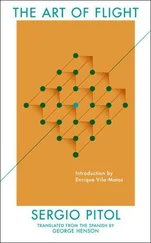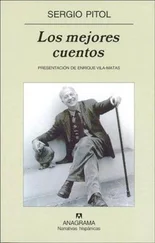We know, and Tolstoy has reminded us with superb words, that each unhappy family is unhappy in a different way. The causes of unhappiness can be infinite. The effects, the gestures, the epidermis are observed from the outside; in day-to-day gossip we learn of countless cases of separation, amazing escapes, fairy-tale divorces, or other infinitely more sordid tales. We sometimes come out in favor of one or the other of the spouses. The violent husband, the frivolous wife, the excessive greed of one or both, the meddling of in-laws, relatives, friends, stupidity, jealousy, may all be elements of the plot. We know that and more, much more, but we never manage to measure the silent disagreement of the senses, nor the minutia hidden in the inner folds that are derivations of the physical, the battle of the sexes in all its aspects, and even if one or the other of the spouses confides in us, which is the worst that can happen to someone, and the abuses of friendship are horrifying, meticulously physiological, and make us believe that we know everything, it is in no way true. Everything they tell us, even when deformed by passion and anger, may be true, but it is but a fence around the truth, an approximation. Biographies of Tsvetaeva by Simon Karlinsky and by Veronique Lossky provide only minimal insight into the married life of the Efrons. On the one hand, one is thankful to them, but in this very obscure case, an intimate look could clarify some things, especially because in Tsvetaeva’s poetry, love and sexual passion play an important role.
Both Efron as well as Marina are convinced that their marriage can no longer survive. But only days later, each is separately convinced that without their protection the life of the other spouse would be a disaster. So they establish a tacit agreement to not separate. They are fooling themselves, or wish to fool themselves, because they each have a unique ability for survival. The proof is manifest: in all the dire situations they faced during the seven years of separation — war, threats of all kinds, loss of economic security, death by starvation of a daughter, twenty thousand dangers from which they escaped, he on the German front and then in intermittent battles in Crimea where he was threatened by two enemies flanks, the Bolsheviks and the Whites — they had managed to come out alive and in perfect physical shape, or close; and now he was studying philology with a scholarship from the Czechoslovakian government, and she had emerged as a first-rate literary figure; when they have lived through all that and are fully active, the argument to not separate, to not leave the other unprotected, rings false, trivial. For her, the frequent romantic crises meant a subsequent rebirth, from each disastrous story a bundle of splendid poems was born. The covenant established in Prague was maintained until the end. Ultimately, the solution was the worst, the most ruthless they could invent. Neither party ever moved out of the house, but who knows what amount of lost energy, of limitations, were left rotting at their core, what toxins accumulated. Sergei was forced to play the role of the offended party. In the intellectual circle of Russians in Prague everyone learned about the acute marital crisis. Marina announced her unbridled passion for a second-rate Casanova and the women of the circle intensified their sympathy for the aggrieved husband and their coldness for his wife. Might their commiseration have been humiliating for him? Could it have given him some satisfaction? It was, in the eyes of the others, like this: the hero, who took up arms for the restoration of order, was deceived by a terrible woman; the young officer whom his friend betrayed, was seduced by a black sheep, a nasty, pompous, and extravagant shrew. With Efron it is difficult to know. Soon after, a new son was born, Georgy, whom Marina, from the first moment, desperately loved, isolated from the world, wrapped in cellophane, and declared her property in full. In a blurry photo on a wooden staircase in a visibly miserable place, an old woman is seen, sitting next to a blond boy. The photograph is dated 1935, so the child would have been barely ten, but his appearance is that of an adolescent, the Russian athletic type, with the scowl of someone who has few friends; the woman at his side, disheveled, shaken, watches the photographer with a look of anxiety and something akin to despair. They are, as you have probably already guessed, Marina Tsvetaeva and Georgy Efron, the famous Mur. Her biographers, the chroniclers of Russian exile, all agree that the mother had erected an invisible fence around him from which it was difficult for the child to escape; she adored him, spoiled him, was proud of him, but she could not let him breathe outside her reach. He was entirely hers. The quality of the photograph is poor, and the reproduction worse. It is incommensurate with a scene of familial plenitude, of harmony between mother and son. Looking at her, we already know that Mur gives the orders and the old distraught woman, who believes she is the mistress, is in fact the victim. The young Theseus and the Minotaur, which, by way of an extravagant metamorphosis, has been transformed into a chimera. It’s a terrible time for Tsvetaeva; she lived in poverty after arriving from Paris, which was increasingly exacerbated by attacks from all sides. Her situation is in sharp contrast to the other two family members who, sitting in a forest, have achieved harmony in their friendship. Their ideas are the opposite of Marina’s. They have become, like many people in France, in Europe, in the entire world, since the economic crisis of 1929, pro-Soviet.
The most difficult personality to discern is Efron. He begins projects that he never finishes. His wife’s friends believe him to be unintelligent. He seems not to be interested in what they think of him. Surely by today his file in the Lubyanka has cleared up all the mysteries that surround him. All the parts that form the puzzle are classified there. But just thinking about him, he becomes a very suggestive fictional character. It is possible that his older sisters, who raised him after the suicide of his mother and older brother, and the associated trauma, may have turned him into a dependent being, a superfluous man like so many good and wretched men who populate the Russian literary world, that he feared loneliness, that he preferred to endure all the humiliations that his elders before him, and his wife later, inflicted on him in exchange for allowing him to live in their shadow. She had become one of the great figures of exile and he had come to nothing. Mirsky already by the early twenties added a page on her poetry to the splendid history of Russian literature that he published in England. Her fame grew rapidly; she had to her credit a dozen books of poetry, Czechoslovakia had been for her a fertile space for creation. Apparently, however, nothing about the country or its culture interested her, because she was more deeply rooted in its language and German literature was only of secondary interest. She was ready to take the plunge: Paris. It is possible that such circumstances were pleasing to her husband, but it is also possible that he concealed inside himself a seed of rancor without even being aware of its existence. The result would manifest itself as a dead weight for the family: leaving everything unfinished, like his studies in Moscow, his philology studies in Prague, and later his film studies in Paris. His wife would be famous; he would applaud her thunderously at the end of her readings. His wife would sleep with whomever she liked, and would maintain via correspondence platonic relationships with the brightest luminaries in Europe; he, meanwhile, would read newspapers and converse with his daughter, with whom he was growing increasingly closer. He freed Marina so she could depart for Paris, where he would join her months later, so she could settle in to her liking and occupy her rightful place. Recognition awaited her, and in the first months she received it. It was enough that Dmitri Svyatopolk-Mirsky declared in his journal the primacy of Tsvetaeva above all poets in exile, and that she wrote a literary article, in which she demonstrated that the exiled Russians critics were incapable of judging the new poetry, for her to be anathematized by almost the entire Russian community in France. Her arrogance did the rest. Sergei Efron would arrive in Paris later and would be invited by Svyatopolk-Mirsky and some other intellectuals to edit a magazine of Russian culture, a culture different from that of exile, and different above all from how it was conceived in Paris’ Russian circles. For them no one who had stayed in the Soviet Union deserved the name of writer, much less a poet. They were nothing but trash, rabble, like Eisenstein in film, like Meyerhold in theater. The Svyatopolk-Mirsky and Efron magazine took at its name the title of a book by Tsvetaeva: Milestones . That closeness was enough for the writer to be regarded by the most narrow-minded as a voice in the service of the Bolsheviks. She, who in her public appearances continued to read some of the hymns to the White Guards! As early as 1927, after just a year and a half in France, she was already lamenting: “In Paris, with rare personal exceptions, everyone hates me, they write all sorts of nasty things about me. According to them, I write poems in the style of the ‘Communist Youth’ and I receive a ‘salary from the Bolsheviks.’” 17
Читать дальше












